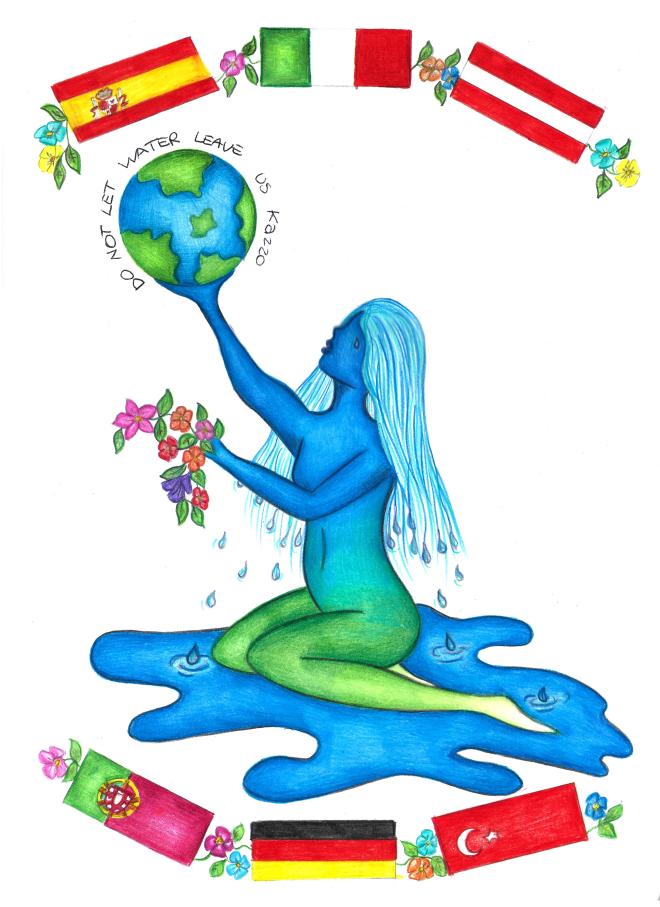About the project
Do not let water leave us
Priorities:
This project is related to the "Environment and Fight against Climate Change;" priority.
The growing world population has already started to appear as a threat to natural resources since it has led to an increasing demand for them. One of these diminishing resources, which we have put in the core of this project, is water. It has started to be scarce in a noticable way, requiring us to take significant actions. Therefore, we aim to raise awareness on water literacy at local, national, and international levels and to have our students in our institutions gain lifelong sustainable habits,and to create awareness about how crucial it is to protect our water resourcesin partner schools, NGO and education center in connection with sustainable development and to find out more effective strategies and methods together at
European level for water which seems to be one the most significant global problems of the future. The Exchange of good practices and joint Exchange of experience will contribute to the application of these priorities. When it comes to our priority as "Promoting interest and excellence in science, technology, engineering, and mathematics (STEM) and the STEAM approach"
This priority will be our guide during our search of effective means to deal with water issues. 21st-century skills such as inquiry, dialogue, innovativeness, critical thinking, problem-solving through interdisciplinary approaches, information literacy, and creativity are essential skills that students need in STEAM fields. And in a cooperation partnership, we want to increase our students’ interest in STEAM fields so that they will be able to make informed decisions and produce better solutions in terms of global and daily problems. Both priorities, we believe, will develop the qualifications of students and staff in our institutions at the European level, enhance strong relations and cooperation between stakeholders and partners and create effective results through partnership.
Topics addressed by this project:
- Environment and climate change
- Science, technology, engineering and mathematics (STEM)
- Green skills
Goals:
-To help students between the ages of 10-16 develop an awareness of water literacy, encouraging them to have sustainable and responsible consumption habits, and learning about being a conscious world citizen,
-To have students obtain STEAM skills in accordance with the needs of the 21st century such as creativity, information literacy problem-solving, critical thinking, and resilience.
-To raise an understanding of water issues such as water pollution, water shortage, water conservation, and the sustainability of water resources in partner institutions, local, national, and global masses.
-To apply new methods regarding creative learning and teaching approaches and technological developments.
-To develop effective materials and sources with the cooperation partnership, to promote the distribution and sharing of these materials and Project results; to create a platform through which teachers and NGOs across Europe can exchange their good practices on STEAM education.
Expected results during and after the project:
-Common and local activities to promote public awareness of water issues so that people make their own, informed decisions in local, national, and international communities through dissemination.
-Improvement of the relations and collaborations between schools, NGOs, and stakeholders and thereby promoting new collaborations and partnerships in the future.
-Students understand the value of saving water to cope with its scarcity affected by the rapid population growth and the negative effects of climate change. They will also encourage people in their environment to be engaged in water issues.
-Students integrate with problem-solving, innovative and other crucial skills to manage problems in their daily lives. They engage themselves with the STEAM fields and thanks to the STEAM approach, they get effective products that contribute to the solution of the problems.
-Participants will improve their communication skills in a foreign language and they will learn about different cultures thanks to cooperation partnership which will enhance their conscious citizenship attitudes.
-.Participants will be a part of a learning, teaching and training process at the European level which will help them to navigate across different cultural environments. The experiences that the teachers have gained along the Project will be applied in their classrooms for years to come.
-After the Project is completed, the partner institutions will develop collaborations for global sustainability on the problem of water scarcity and try to make their voices heard on common platforms.
Concrete results:
-Water Literacy Rubric for teachers, students and adults
-Project website, and eTwinning project
-Promotional products such as Interactive posters, brochures
-The Green Platform
-The Water Save Curriculum
-Interactive story, and infographic study



